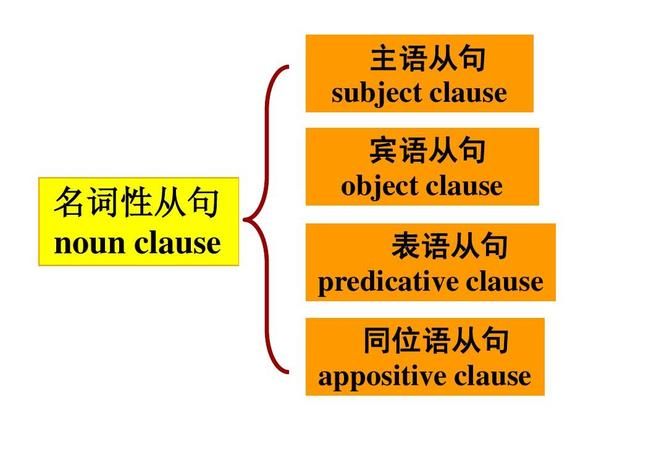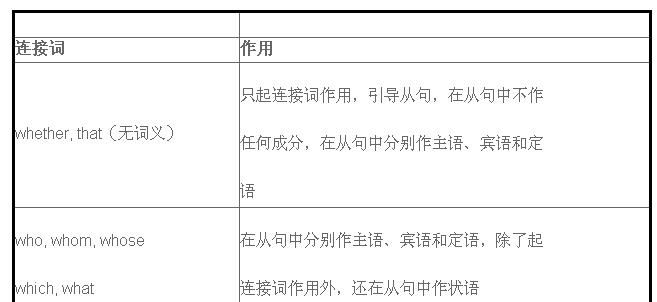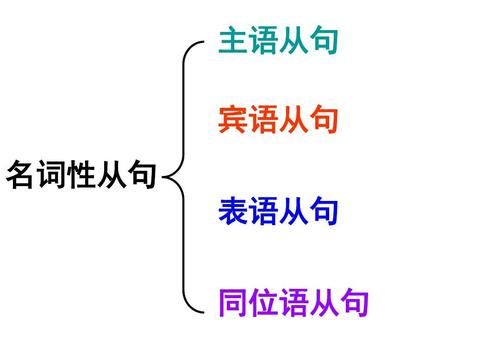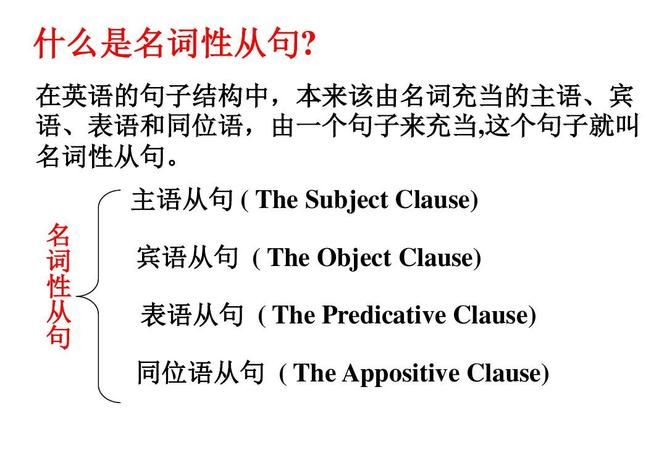本文目录
什么叫同位语从句
在复合句中充当同位语的名词性从句称为同位语从句。
同位语从句是名词性从句(主语从句、表语从句、宾语从句、同位语从句,介宾从句)中的主要从句之一,从句作同位语表示与之同位的名词(短语)的实际内容,它的作用相当于名词,对前面的名词(短语)加以补充说明或进一步解释,相当于一个表语从句,它们之间的关系是同位关系,即主表关系。
表语从句(Predicative Clause)就是用一个句子作为表语。说明主语是什么或者怎么样,由名词、形容词或相当于名词或形容词的词或短语充当,和连系动词一起构成谓语。

同位语从句和表语从句怎么区分
The problem is whether you could give us some valuable advice .(表)
2.His suggestion is that we should finish the work at once.(表)
3.My idea is that we should do it right now.(表)
4.The problem is that he can not speak English.(表)
这几个句子都是表语从句。关于同位语从句,请参考以下资料:
1. 同位语从句的意义
同位语从句用于表示名词的内容,对其加以阐明名解释。能跟有同位语从句的通常是具有一定内容含义的名词,如:fact(事实),idea(想法),news(消息),hope(希望),conclusion(结论),certainty(确实的事),evidence(证据),suggestion(建议),order (命令),problem(问题)等。例如:
The doctors came to the conclusion that the patient was suffering from cancer. 医生得出的结论是病人患了癌症。
The discovery that every heavenly body has gravity was made by Newton. 每个天体都有引力的发现是牛顿作出的。
2. 同位语从句的结构
同位语从句通常由that引导,但随着其先行词的不同,也可由whether, when, where, how, what, why 等引导。例如:
They are faced with the problem whether they should continue the work. 他们面临着是否要继续那项工作的问题
I have no idea when he will return. 我不知道他什么时间回来。
3. 同位语从句的位置
同位语从句一般情况下紧跟在有关的名间后面。然而,有时则不是这样,它被其他的词隔开了,或者说被后置了。例如:
An idea occurred to him that he might borrow the money from his father. 他突然想起他可以从父亲那儿借到这笔钱。
They heard the news on the radio yesterday that a typhoon was ocxning. 昨天他们从收音机里听到台风要来的消息。

表语从句和同位语从句的区别是什么
引导同位语从句的单词很多new,idea,fact,promise,question,doubt,thought,hope,message,suggestion,word(消息),possibility等;
英语中引导同位语从句的词通有连词 that,whether,连接副词 how,when,where等。(注:if,which 不能引导同位语从句。)如:
l have no idea When he will be back.我不知道他什么时候回来。
He must answer the question whether he agrees to if or not. 他必须回答他是否同意这样一个问题。
2.定义:
A 表语从句就是用一个句子作为表语。
The problem is puzzling.
主语 连系动词 形容词作表语
The problem is when we can get a pay rise.
主语 连系动词 一个句子作表语---表语从句
连接表语从句的连接词有:that, what, who, when, where, which, why,
whether,how.
He has become a teacher.
He has become what he wanted to be ten years ago.
She has remained there for an hour.
She has remained where I stood yesterday for an hour.
His suggestion is good.
His suggestion is that we should stay calm.
The question is confusing.
The question is when he can arrive at the hotel.
who will travel with me to Beijing tomorrow.
why he cried yesterday.
how I can persuade her to join us in the party.
whether the enemy is marching towards us.
二 注意:
A 表语从句一定要用陈述语序。
False: The question is when can he arrive at the hotel.
Right: The question is when he can arrive at the hotel.
B 不可以用if,而用whether 连接表语从句(as if 例外)。
False: The question is if the enemy is marching towards us.
Right: The question is whether the enemy is marching towards us.
Right: It looked as if he had understood this question.
C 不像宾语从句,在有表语从句的复合句中,主句时态和从句时态可以不一致。
Right: The question is who will travel with me to Beijing tomorrow.
Right: The question is why he cried yesterday.
D that在表语从句中不可以省掉。
表语从句只能置于主句之后,而主句的动词只能是联系动词。

英语中如何区分表语从句和同位语从句的区别
首先要知道这两个从句的意思
1。什么是表语从句?
在句中起到表语作用的句子就叫表语从句。
表语从句放在系动词后面。它也是由that,
what,
why,
how,
when,
where,
whether等连词和关联词引导的。一般来讲,可以先译主句,后译从句。
2.什么是同位语从句?在句中充当同为关系的句子。也就是这个连接词和前面所讲的人和事的是指同一个人和事。
引导名词性从句的连接词可分为三类:
连接词:
that,
whether
,if
(不充当从句的任何成分)
连接代词
:what,
whatever,
who,
whoever,
whom,
whose,
which
连接副词
:when,
where,
how,
why
不可省略的连词:
(1.
介词后的连词
(2.
引导主语从句和同位语从句的连词不可省略。例如:
That
she
was
chosen
made
us
very
happy.?
她被选上了,我们很高兴。
We
heard
the
news
that
our
team
had
won.
我们听到消息说我们队赢了。
比较:whether与if
均为"是否"的意思。
但在下列情况下,whether
不能被if
取代:
1).
whether引导主语从句并在句首
2.
)引导表语从句
3).
whether从句作介词宾语
4.)
从句后有"or
not"
大部分连接词引导的主语从句都可以置于句末,用
it充当形式主语。例如:
It
is
not
important
who
will
go.
谁去,这不重要。
It
is
still
unknown
which
team
will
win
the
match.
到底谁赢呢,形势尚不明朗。

以上就是关于表语和同位语从句的区别,什么叫同位语从句的全部内容,以及表语和同位语从句的区别 的相关内容,希望能够帮到您。

